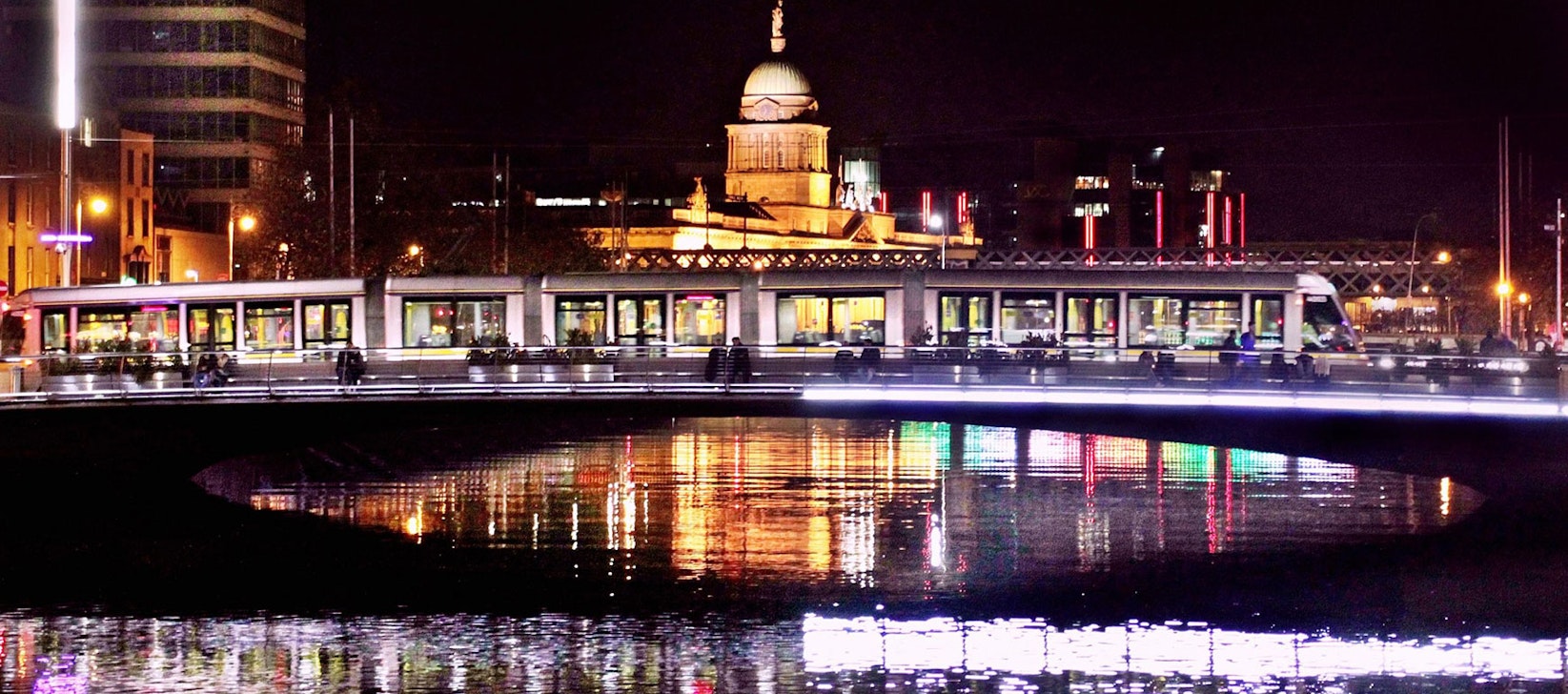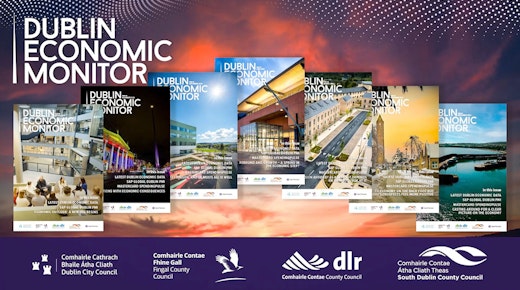“A young Irish State transitioned from relative economic stagnation and insularity to embrace economic openness, a place at the heart of the Single Market, a competitive and attractive location for global investment”
Tánaiste Micheál Martin on Ireland
As Ireland marks fifty years of our EU membership this year, we at European Movement Ireland have been reflecting on the benefits the EU has brought for Ireland.
The benefits to Ireland of our EU membership are wide ranging. From access to the EU’s Single Market of some 450 million people, to utilising the advantages of trade agreements the EU has struck with countries, such as Japan. Meanwhile, EU standards are far reaching, from helping keep our food safe, to looking at methods to combat climate change.
As the centre of trade and investment in Ireland, and as we mark 50 years of being in the EU, it is timely to highlight some of the direct and indirect benefits Dublin has gained as a result of Ireland’s EU membership.
A European Tech Hub
Since the start of this century, Dublin has consolidated itself as a European tech hub. Global tech companies have set up their European and international operational offices in what is sometimes referred to as the ‘Silicon Valley of Europe’.
The current iteration of tech companies to set up in Dublin began in 2003 with eBay, Google and PayPal. Many more household names have followed, such as Meta in 2008 and TikTok in 2018. More recently, Mastercard opened its European Tech Hub in Dublin in April 2022.
A key factor behind such tech companies opening operations in Ireland is due to our membership of the EU. A 2022 report from Economist Intelligence Unit found that 46% of respondents ranked ‘access to EU markets’ as the top competitive advantages that Ireland has to offer.
Access to Labour
The report also ranked ‘access to EU skills’ (23%) as the 6th highest competitive advantage of Ireland. Due to the freedom of movement principle for EU citizens in the EU’s Single Market, EU citizens can move here to live, work and study without visas or work sponsorships, as
found in countries such as Australia or Canada.
This gives tech companies, or indeed other companies, firms, educational institutions, etc., that are based in Dublin, the ability to easily hire skilled and talented people from across the EU. On this, data backs up that Dublin is attracting far more EU citizens to live and work there than anywhere else in Ireland.
The Department of Social Protection publishes amalgamated data on new PPS numbers that are issued annually. When looking at PPS numbers that were issued to EU citizens across Ireland in 2022, for those aged 25 – 64, Dublin saw the lion’s share with 46% (16,057). This is followed by Mid-East at 14% (4,943) and South-West at 13% (4,725).
These positive aspects of Ireland’s membership of the EU, resulted in Dublin becoming a top beneficiary of the UK’s departure from the EU, in particular for financial services. Between mid-2016 and early 2021, New Financial reported that some 135 firms had either relocated part of their business or had increased their presence in Dublin. This accounted for 25% of all Brexit-related moves.
Educational Benefits
The attractiveness of Dublin, as a result of our EU membership, can also be observed where participants under the Erasmus+ programme attend educational institutes in Ireland. It was first proposed by Dubliner Peter Sutherland (1946 – 2018) in 1985 when he was European Commissioner for Competition and Education.
It allows participants to attend colleges, universities, and other educational institutions to take part in research and development, courses, traineeships, and apprenticeships right across the EU and participating European countries.
This is in keeping with the core principle of the EU’s Single Market, that of the free movement of EU citizens. Since Erasmus+ began in 1987, over 100,000 people have visited Ireland and Dublin is always the top destination for thousands of Erasmus+ participants. According to a 2016 survey from the Higher Education Authority (HEA), 36% of Erasmus+ students in Ireland were based in Dublin third level institutions.
Supports for Public Transport Development
The EU has helped and is currently helping Dublin and its economy in more indirect ways, such as its public transport system, which helps so many people get about to their place of work and elsewhere. In 2014, the European Investment Bank provided a loan of €150m for the Luas interconnecting lines, accounting for 41% of the final cost of €368m.
Meanwhile, in June this year, it was announced that Iarnród Éireann will receive €1.3m from the EU for studies that will examine the doubling of track capacity between the Connolly and Malahide train stations. Currently, DART and intercity traffic share the same tracks.
To conclude, the story of Dublin over the last fifty years has been transformative, reflecting how Ireland’s society and the economy has transformed too in no short amount due to our EU membership. Dublin’s economy has benefited hugely from Ireland’s EU membership over the last 50 years and will continue to do so for the next 50 and beyond.
Noelle O Connell is the CEO of European Movement Ireland (EM Ireland). Since 1954 EM Ireland’s mission has been to develop the connection between Ireland and Europe, and to achieve greater public understanding and engagement with the EU.





